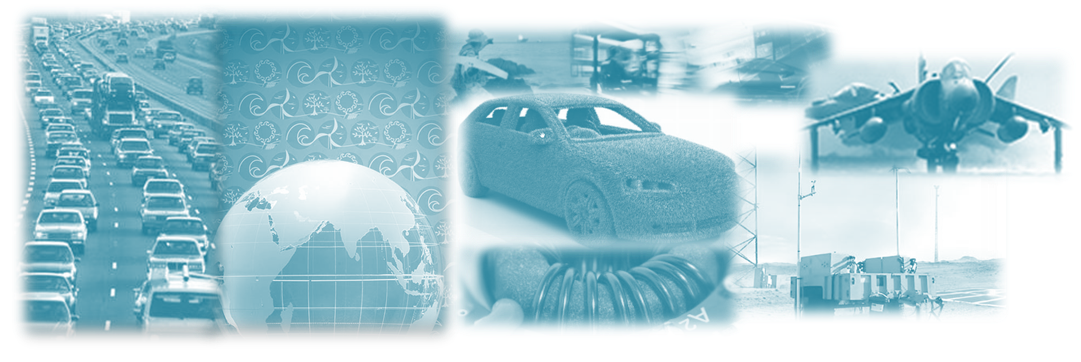|
VECARIUS manufactures formed sheet metal parts at relatively low cost and with accuracy based upon a proprietary sheet metal forming method, which enables a number of benefits. The method can form complex 3-dimensional shapes and features, which can lead to a reduction in the number of parts, manufacturing operations, and cost within an assembly while increasing manufacturing yield and product quality and reliability. Sheet metal forms are especially well-suited for applications requiring a compact and lightweight design since sheet metal can be relatively thin while formed with features to make the part structurally strong and to also serve a performance function.
VECARIUS forming method enables cost-effective rapid prototyping and production -- especially for pilot, low, and medium volumes – and, consequently, is well-suited for new product development (NPD) and scale-up in production. For high volume, in the instance whereby a different method (e.g. stamping, hydroforming, etc) would result in lower part cost, the sheet metal part can be designed so that its shape can be formed by both methods and, therefore, avoid redesign or risk of product performance issues or production disruption during the transition from one manufacturing method (for lower volumes) to another (for higher volumes).
VECARIUS forming method is derived from a process called “Incremental Sheet Forming (ISF or IF)”, which uses a tool that’s maneuvered by a CNC machine to incrementally deform sheet metal into a desired shape. Different techniques of ISF include “Single-Point Incremental Forming (SPIF)”, “Double-Sided Incremental Forming (DSIF)”, and “Two-Point Incremental Forming (TPIF)”.
Because incremental sheet forming (ISF) is a “dieless” process, the tooling cost and lead time are a fraction of what is currently used in a traditional sheet forming operation (i.e. stamping, deep drawing, hydroforming), which uses an expensive die and a mechanical press with high force. Furthermore, ISF offers greater design flexibility and deeper cost reduction if design changes and iterations are necessary in the product development cycle.
VECARIUS can produce formed sheet metal parts for products that are decorative or highly-engineered, which may require tight tolerances. VECARIUS can also combine formed parts into assemblies for customers to provide an optimized, integrated solution.
In addition to expertise in sheet metal forming, VECARIUS possesses design and analysis capabilities for structures (including Finite Element Analysis (FEA)), fluids (including Computational Fluid Dynamics (CFD)), and heat transfer.
VECARIUS is among the first in the United States to provide incremental sheet forming services, a recent innovation in the sheet metal working sector.
Sheet metal that falls within the following parameters may be formed by VECARIUS:
Materials: steel, stainless steel, aluminum, copper, magnesium, gold, silver, platinum, and invar, among others.
Thickness: very thin to thick, up to 0.2" (potentially thicker), depending upon material and geometry of the desired design.
Features: a wide variety of features may be formed into the formed part including ribs, dimples, and grooves, among others. Any holes, cuts, or other subtractive or additive process may be performed after forming.
Composite or polymer sheets may also be formed by VECARIUS method, depending upon the materials and shape.
Applications are numerous, often within the following industries: Medical devices, including biomedical implants; Transportation, including autonomous drones, vehicles, or robots (UAV, UGV); Aerospace; Nuclear reactors; and Defense.
Several examples of applications and associated benefits include the following:
Hermetic enclosure. Metal is a superior barrier to minimize gas diffusion into an enclosure. A formed sheet metal enclosure (e.g. formed pan and cover) minimizes the number of parts and sealing distance, and leak rate -- maximizing hermeticity.
Heat shield / radiative barrier or heat spreader. To protect components from a nearby hot surface, thin sheet metal may serve as a heat shield and be formed with features to provide adequate strength and mounting locations. Similarly, sheet metal forms can serve as a heat spreader to transfer heat away from heat sources or to heat sinks.
Heat exchanger, liquid cold plate. A lightweight liquid-cooled cold plate of very low profile can be manufactured by joining a shallow formed pan and cover. The formed cover can include flow channels with dimples and ribs / grooves designed to ensure suitable cooling performance across the cold plate (e.g. flow distribution, heat flux, etc) and adequate strength. Higher heat flux can be achieved by joining folded fins within the flow channels. Conventional inlet / outlet port designs often impose a relatively large pressure drop, requiring significant pumping power, and pump size. VECARIUS method can form gradual flow transitions to and from the ports to reduce pressure drop and associated pump power, size, and weight. VECARIUS has expertise in heat exchanger design and analysis, including FEA and CFD simulation capabilities to assist customers. Liquid cold plates are often used in to cool batteries or battery modules within electric vehicles (EVs) or drones.
Inquire how your application can benefit from sheet metal parts formed by VECARIUS.
Contact: Steve Casey at scasey@vecarius.com
|


